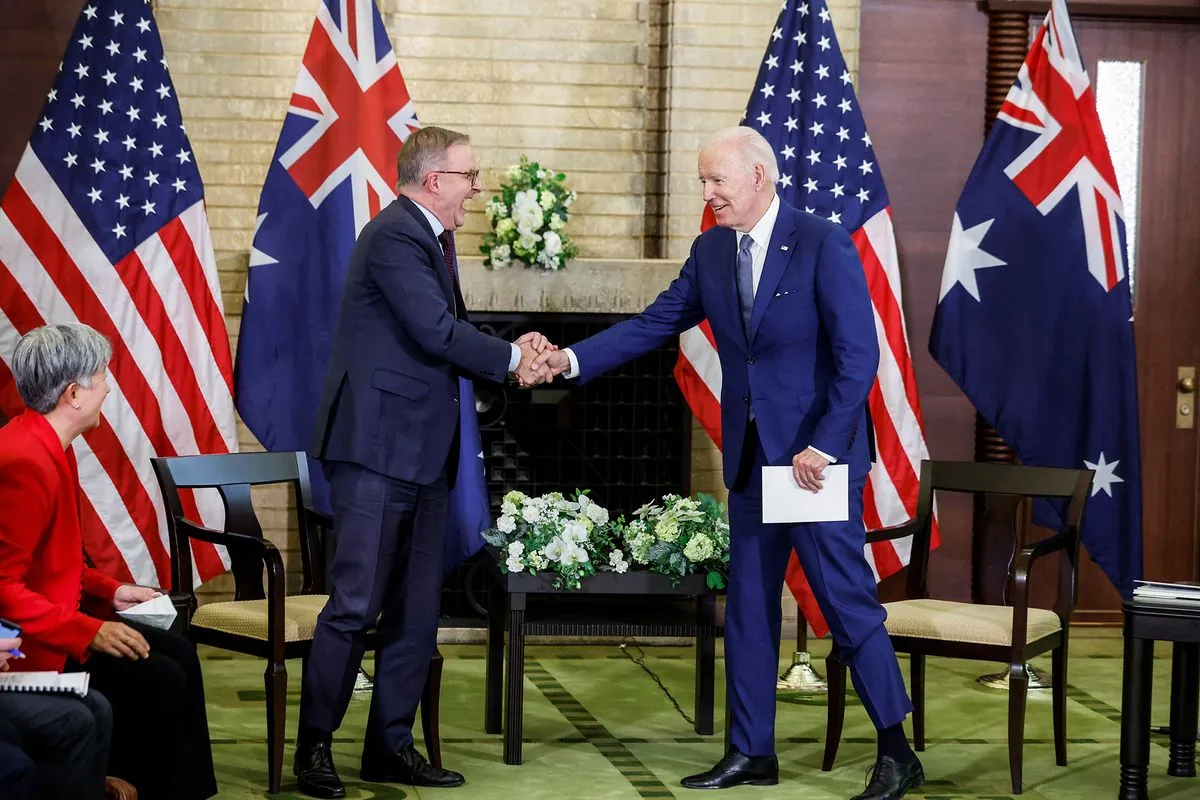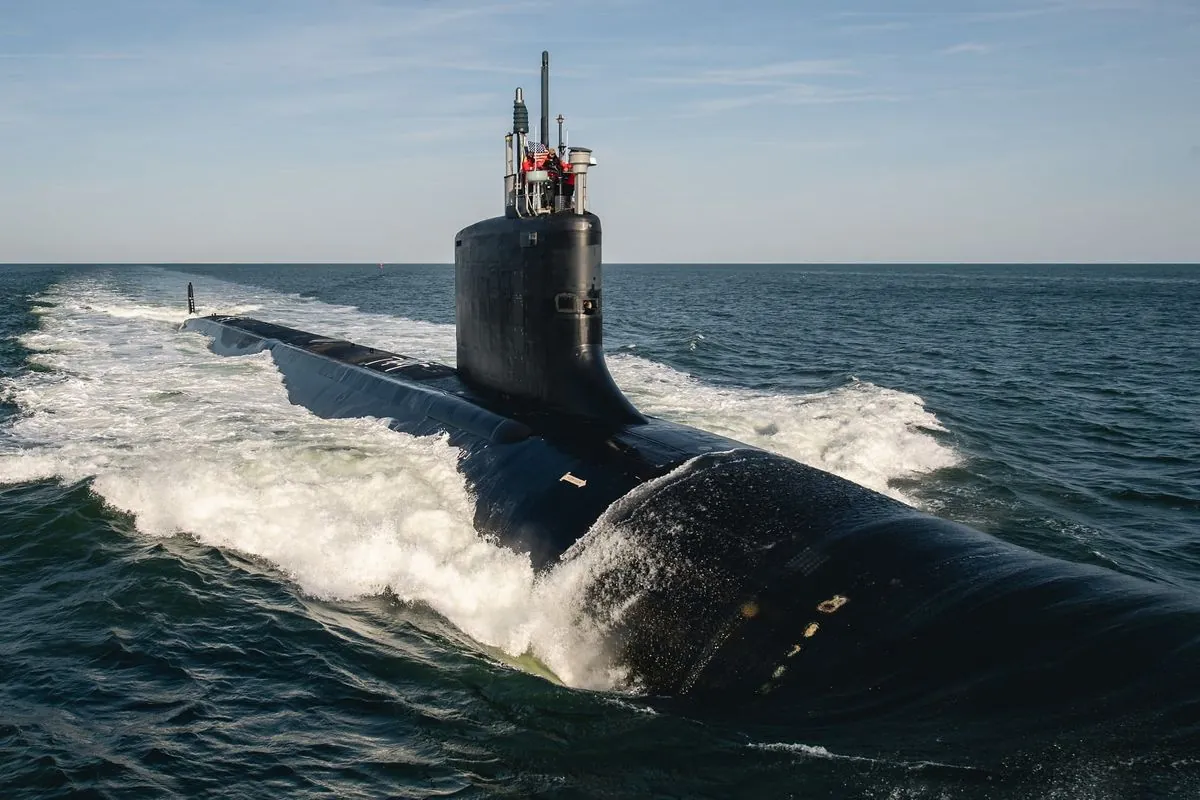Australian PM Confident in AUKUS Pact's Future After Biden Meeting
Australian Prime Minister Albanese expresses confidence in AUKUS pact's continuity after meeting with President Biden. Discussions focused on Indo-Pacific defense cooperation and submarine capabilities.

In a recent development, Anthony Albanese, Australia's Prime Minister, has expressed strong confidence in the enduring support for the AUKUS defense pact, regardless of future U.S. administrations. This statement came following a significant meeting with President Joe Biden, where bilateral defense cooperation in the Indo-Pacific region was a key topic of discussion.
The meeting took place against the backdrop of the upcoming U.S. presidential election, scheduled for November 5, 2024. This election could potentially see a change in leadership, with either Vice President Kamala Harris or Republican candidate Donald Trump assuming the presidency.
The AUKUS pact, established in 2021, is a trilateral security agreement between Australia, the United Kingdom, and the United States. Its primary focus is addressing shared concerns about China's growing influence in the region. The pact aims to enhance Australia's military capabilities, including the acquisition of nuclear-powered attack submarines and advanced weaponry such as hypersonic missiles.

Albanese stated during a televised media conference in Philadelphia, "There is no question in my mind that AUKUS will continue to have the support of any future U.S. administration." This assertion underscores the perceived importance and bipartisan nature of the agreement.
The Australian Prime Minister's visit to the United States coincided with the Quad Leaders Summit, a strategic dialogue involving Australia, India, Japan, and the United States. The summit, held in Delaware, was expected to address ongoing conflicts in the South China Sea, where disputes over territory have led to repeated clashes between Beijing and its neighbors.
Prior to the summit, Albanese and Biden met privately to discuss various aspects of their nations' defense and security cooperation. The leaders reaffirmed their commitment to the AUKUS partnership, noting the significant progress made in developing Australia's capabilities to operate its own fleet of conventionally armed, nuclear-powered submarines by the early 2030s.
This development is particularly noteworthy as nuclear-powered submarines offer superior operational capabilities, including extended underwater endurance compared to conventional diesel-electric submarines. The Indo-Pacific region, which encompasses vast ocean areas, makes such capabilities strategically valuable.
The meeting between Albanese and Biden also highlighted the longstanding alliance between Australia and the United States, which has been a cornerstone of both nations' foreign policies since World War II. This enduring partnership continues to play a crucial role in shaping the security landscape of the Indo-Pacific region.
As geopolitical tensions persist in areas like the South China Sea, which contains significant oil and natural gas reserves, the importance of strategic alliances such as AUKUS and the Quad becomes increasingly apparent. These partnerships aim to maintain stability and protect shared interests in this vital region.
"There is no question in my mind that AUKUS will continue to have the support of any future U.S. administration."
The ongoing commitment to AUKUS, despite potential changes in U.S. leadership, demonstrates the pact's perceived importance in addressing regional security challenges. As Australia moves forward with its plans to develop nuclear-powered submarine capabilities, the collaboration between AUKUS partners is likely to remain a key factor in shaping the strategic balance in the Indo-Pacific region.


































